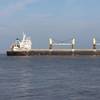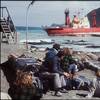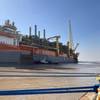Bentley Systems acquired FormSys, based in Perth, Australia. This software development company has a proven, 20-year track record in 3D design, analysis, and construction software for structural engineering, offshore engineering, and naval architecture. The acquisition will expand Bentley’s SACS offerings for the design and analysis of floating structures, further extending the company’s reach in the offshore energy market. SACS is an integrated finite element structural analysis suite of programs that uniquely supports the design, fabrication, installation, operations, and maintenance of offshore structures, including oil platforms and wind farms. Thirty-eight years of focus on these specialized requirements have made SACS the analysis mainstay for most of the world’s offshore engineers. FormSys brings complementary capabilities to this market leader.
CEO Greg Bentley said, “I’m pleased that we are further expanding our leadership role in deeper offshore opportunities with this acquisition. We are nowhere near the point of diminishing returns in engineering software for better-performing offshore structures – ranging from shallow water fixed oil platforms to deep water tethered wind farms – particularly as to their safety and resilience. We are mindful that ‘offshore’ makes up seventy percent of the Earth’s surface, and we would like to contribute even more toward its vital role in sustaining infrastructure.”
FormSys software, like SACS, is employed around the globe. Among the many committed users of its products are leading consulting engineering companies in the offshore sector, including Aker Solutions, DOF Subsea, and Noble Denton, and classification societies Lloyds Register, DNV, and ABS. FormSys users, as well as the users of SACS, will benefit both technically and commercially from this acquisition. FormSys software is particularly strong in the analysis of
offshore vessels and structures such as offshore supply vessels, FPSOs, and drillships, as well as spars and semi-submersibles. This complements the industry-leading capabilities of the SACS product line in the design and analysis of fixed offshore structures, making the combined technology strengths a compelling fit for offshore structures of all types.
Said Santanu Das, Bentley vice president, Integrated Engineering, “On behalf of my colleagues at Bentley, I welcome our new team members from FormSys, many of whom are seasoned structural engineers and naval architects. In providing advanced tools for intact and damage stability as well as motions prediction for ships like FPSOs, Maxsurf from FormSys augments the powerful functionality of our SACS offerings, particularly for floating offshore structures.
The acquired software adds to our broad range of flexible and scalable integrated structural analysis and design offerings, including STAAD, RAM, ProSteel, and Structural Modeler, and the strong presence of FormSys in the Japanese and Australian markets presents us with new opportunities for additional growth in these regions. Most importantly, our ongoing integration work, using the Integrated Structural Modeling methodology, will soon deliver uniquely comprehensive solutions across the fuller breadth of offshore structures.”
Said Philip Christensen, founder of FormSys, “My FormSys colleagues and I are extremely happy to be a part of the Bentley team. Our organizations share design priorities in the key areas of intuitive user interfaces, information modeling incorporating parametric design capabilities and advanced algorithms, and industry standards to promote interoperability among our own and other suppliers’ software and systems. Together we will enable more complete information modeling for all marine conditions, leading to offshore structures that are safer and more efficient to deliver and operate.”
The two primary products in Bentley’s FormSys portfolio are Multiframe and Maxsurf.
Engineers use Multiframe for general structural analysis, lifting analysis, calculation of motion induced loads, wind loads, hydrostatic loads, stiffened plate analysis, and steel code checking. Naval architects use the Maxsurf suite of software to model vessels and floating structures, assess stability and strength, and predict motions and power requirements.
www.Bentley.com/FormSys










